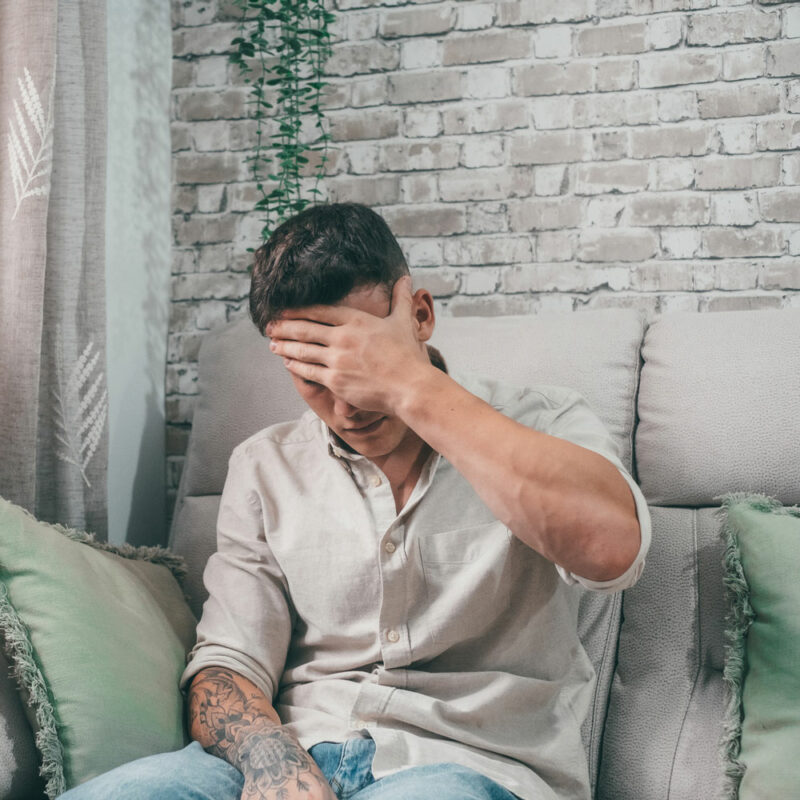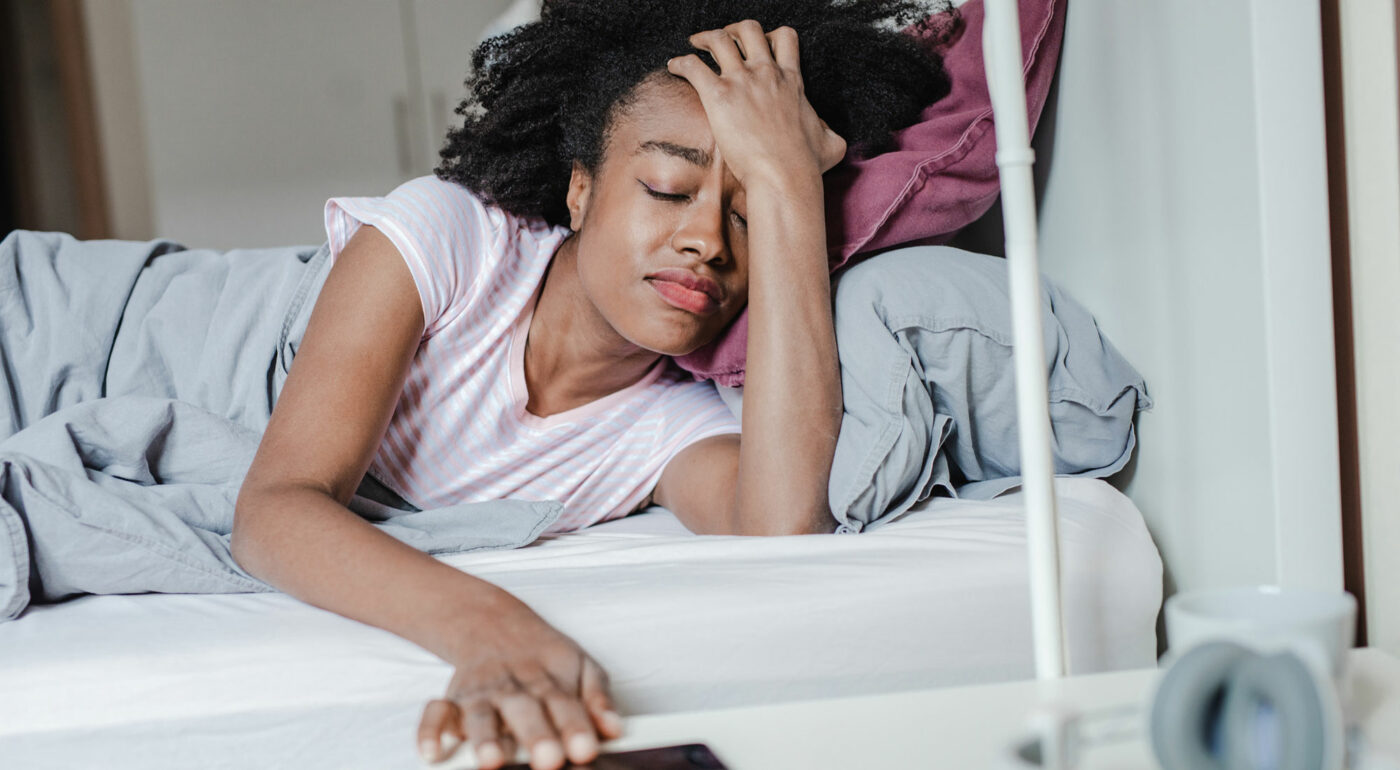By Wesley Gallagher
If you’ve ever woken up feeling less than ideal after having one too many drinks the night before, you’re not alone. Alcohol may seem fun the night before, but too much can make for a regrettable morning.
We all know the telltale signs of a hangover: headache, nausea, dehydration, exhaustion. But there’s a symptom you might have experienced without knowing what it is — hangover anxiety — or to use a catchy new word: hangxiety.
Alcohol, the Brain, and Hangxiety
It’s obvious that alcohol affects our brains and bodies; there’s a reason why we go from loose to tipsy, to a little bit drunk as the drinks add up. But did you know that it’s a neurotoxin?

According to Live Science, as alcohol enters your bloodstream, it alters levels of neurotransmitters responsible for thoughts, behaviors, and emotions. Initially it releases more dopamine in your brain, hence the warm fuzzies after that first drink. But as time goes on and you continue to drink, it slows your brain down by suppressing certain neurotransmitters while simultaneously reducing inhibitions by increasing others.
Your brain tries to compensate for these effects, so once the alcohol wears off, it goes into overdrive, which can lead to feelings of anxiety and other cognitive difficulties.
Hangover + Anxiety = Hangxiety
So what is hangxiety? Simply put, it is worry, shame, guilt, or other anxious feelings after a night of drinking. While you might chalk it up to the fact that overindulging can make you do some pretty dumb things, there are other factors that can contribute to hangover anxiety.
- Poor Sleep
A study in the aptly-titled journal Alcohol found that while alcohol may initially help you fall asleep, it actually disrupts sleep in the second half of the night. Additionally, according to Sleep Medicine research, lack of sleep increases anxiety levels.
- Dehydration
Alcohol is a diuretic, which is why dehydration is one of the main symptoms of a hangover. A study conducted by Plos One suggests that in addition to grogginess and headaches, lack of water before drinking alcohol leads to negative moods the following day.
- Emotional Withdrawal
Alcohol releases endorphins in the brain, which can serve to numb both physical and emotional pain. However, once its effects wear off, that pain comes right back, which can cause depression and anxiety.
Alcohol releases endorphins in the brain, which can serve to numb both physical and emotional pain. However, once its effects wear off, that pain comes right back, which can cause depression and anxiety.
- Social Anxiety
If you drink to reduce social anxiety, it might work for a little bit. A drink or two can relax you and make you less shy, but only temporarily. Those anxious feelings will return once the alcohol wears off.
- Regret
Let’s face it, alcohol can lead to poor choices. And in the light of day, those poor choices can leave you basking in regret and guilt over doing or saying things you normally would not.
While hangover anxiety can affect anyone, people already prone to anxiety and other mood disorders are more likely to experience it.
Adolescents and teens are also more susceptible to the effects of alcohol, including hangxiety. According to the National Institute on Alcohol Abuse and Alcoholism, adolescents are more likely to binge drink when they consume alcohol. Their developing brains make them more prone to risky behavior, including unsafe alcohol-related behaviors, and they are less likely to consider the consequences of their actions due to an underdeveloped prefrontal cortex.
How to Get Rid of Hangxiety
Unfortunately, just like a hangover, there’s no quick fix for hangover anxiety. However, USA TODAY offers a few of the following tips to get rid of hangxiety:
- Get Physical
Resist the urge to stay in bed all day and get some exercise instead. Drink plenty of water and eat nutritious foods to replenish your body.
- Practice Mindfulness
Close your eyes and take deep breaths while paying attention to your body. Notice your thoughts without judgment and attempt to calm your brain. This can help with all anxiety, not just that which is alcohol-induced. If mindfulness feels like too much, try another relaxing activity like listening to music or reading a book.
- Be Kind
To yourself! Remind yourself that mistakes are part of life, including drinking too much. Just don’t forget to learn from your mistake.
- Cut Back
If this a frequent occurrence, consider whether it’s time to cut back on your alcohol intake.
If you think you might have a problem but are unsure, this quick alcohol questionnaire is a good place to start.
The Meadows Texas Is Here for You
A night or two of overindulging may not be cause for concern, but if you find yourself drinking so much that you wake up with a hangover more often than not, it might be time to seek professional help for alcohol addiction and the underlying issues that may be fueling the problem.
A night or two of overindulging may not be cause for concern, but if you find yourself drinking so much that you wake up with a hangover more often than not, it might be time to seek professional help for alcohol addiction and the underlying issues that may be fueling the problem.
The Meadows Texas offers personalized, holistic treatment for alcohol and drug abuse, as well as co-occurring disorders like mental health issues and emotional trauma. Our staff are trained in the Meadows Model of trauma-informed care, which gets to the root of any and all presenting problems to produce full and lasting healing.
Our sprawling campus offers a serene environment where you can fully focus on your recovery, which doesn’t just mean sitting in therapy all day. Healing can also look like practicing yoga, playing disc golf, or fishing. We work hard to provide everything you need to begin your journey to lifelong recovery. Contact us today to find out how to get started.

